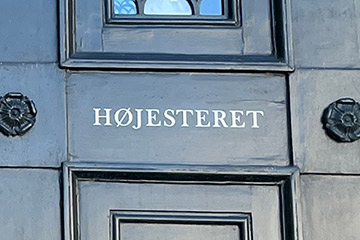Judgment of general public importance concerning the effective date for tax purposes of a merger
Two Danish companies were successful before the Danish Eastern High Court in a case of general public importance concerning the effective date for tax purposes of cross-border intra-group mergers. The companies' Danish taxable income was consequently reduced by more than DKK140m. Plesner conducted the case on behalf of the companies.
The issue of the case was the effective date for tax purposes of a cross-border merger during the income year 2008 between a German company and its Danish affiliated company with the German company as the continuing company.
In the opinion of the companies (the taxpayers), the merger had retroactive effect for tax purposes in Denmark as well as in in Germany from the cut-off date for accounting purposes, ie 1 February 2008.
However, the Danish tax authorities decided that the merger was not effective for tax purposes until the date of the adoption of the merger on 20 August 2008, and that the income of the Danish company during the period from 1 February 2008 until 20 August 2008 was therefore to be taxed in Denmark.
According to the Danish tax rules, a cross-border merger generally has tax effect from the cut-off date for accounting purposes for the continuing company. However, this does not apply if the group relationship in one of the merging companies ceases to exist in connection with the merger and a so-called part-period statement of income under the Danish rules on joint taxation consequently is to be prepared. In such a situation, the merger will instead have tax effect from the termination of the group relationship, typically the date on which the merger is finally adopted.
In the relevant case, it is indisputable that the Danish company ceased to be subject to Danish joint taxation when the merger was adopted. However, the company did not cease to be subject to the joint taxation because the group relationship was terminated (as it was an intra-group merger) but because the Danish company was no longer liable to pay tax to Denmark. Accordingly, the conditions for joint taxation were not fulfilled.
The tax authorities' decision was first brought before the National Tax Tribunal that, however, upheld the tax authorities' decision. The companies consequently brought the National Tax Tribunal's decision before the Danish courts where the matter due to its general public importance was heard by the Danish Eastern High Court as the first instance.
Before the Danish Eastern High Court the Danish Ministry of Taxation claimed that the Danish Merger Tax Act's provisions concerning the effective date should be interpreted in the light of the rules on joint taxation, and that discontinuation of joint taxation because the group relationship terminated was to be compared with discontinuation of joint taxation due to cessation of tax liability. Accordingly, in the opinion of the Danish Ministry of Taxation, a part-period statement of income was to be prepared even if the merger did not entail a termination of the group relationship and therefore, the Ministry found, the merger was not effective until the date of its adoption on 20 August 2008.
The companies submitted in relation to this that the wording of the rules on the merger date for tax purposes entailed that the general rule was to be applied as it was undisputed that a group relationship was not terminated. The companies submitted in the alternative that if the Ministry of Taxation's interpretation of the provision were to be taken into account, the provision would be contrary to Union law. The companies therefore requested, in the alternative, a preliminary reference to the Court of Justice of the European Union if the Ministry of Taxation's interpretation of Danish law was upheld.
That did, however, not become necessary.
The Danish Eastern High Court agreed with the companies that it follows from the wording of the Danish Merger Tax Act that the exemption clause on effect for tax purposes from the date of the adoption of a merger is not applicable in situations where a company ceases to be subject to joint taxation without the group relationship terminating at the same time. Moreover, the preparatory works could not lead to any other interpretation. Accordingly, the merger was also granted effect for tax purposes in Denmark from the cut-off date for accounting purposes on 1 February 2008.
The judgment is final
The Danish Eastern High Court delivered judgment in the case on 27 October 2017. The deadline for the Danish Ministry of Taxation's appeal of the judgment expired on 24 November 2017 and accordingly the Danish Eastern High Court's judgment is final.
The case entails that in future cross-border mergers between affiliated companies are to take place with retroactive effect for tax purposes to the merger date for accounting purposes. As the Danish Eastern High Court further sets aside the existing practice of the Danish Central Tax Administration (SKAT), the Ministry of Taxation must be expected to issue guidelines that will enable taxpayers that have been involved in cross-border intra-group mergers subject to SKAT's previous practice to have their cases reopened.
A Plesner team consisting of Attorney, LL.M., Partner Lasse Esbjerg Christensen, Attorney, Partner Jef Nymand Hounsgaard and Assistant Attorney Lise Winther Jensen handled the case, and it was litigated by Jef Nymand Hounsgaard.







